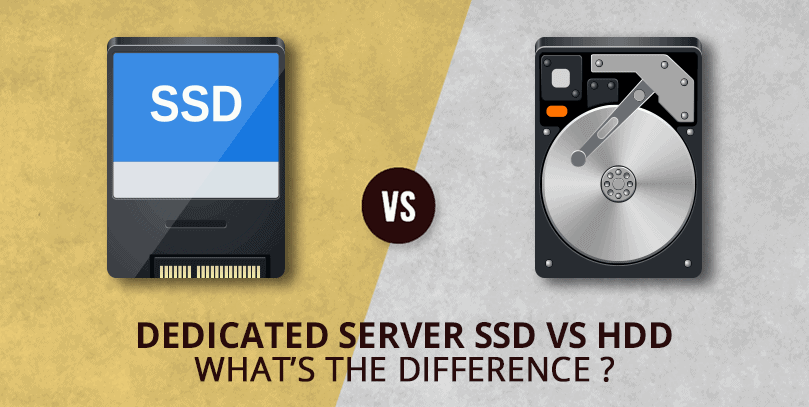Dedicated Hosting Servers are the most powerful and robust hosting servers available for hosting a business website. When you are choosing a Dedicated Hosting Server, you need to choose the operating system, managed/unmanaged variants, storage drives, etc. The choice of any of these factors depends upon the exact requirement of your website.
While Linux and Windows are the two popular Operating Systems, the choice between managed or unmanaged servers depends upon your technical proficiency or the availability of time and resource to manage the server.
When it comes to storage drives, the two options available in storage are the traditional Hard Disk Drives (HDDs) or Solid State Drives (SSDs). This can be an important decision while choosing Dedicated Server Hosting since it can directly impact the speed and performance of your site.
Since SSDs are relatively new in the market, many site owners are unaware of its features. In this article, we will be comparing SSD Dedicated Servers and HDD Dedicated Servers to help you make the decision.
Table of Contents
Comparing HDD and SSD Dedicated Servers
Here are some important differences between SSD and HDD Dedicated Servers:
1. Speed of the Dedicated Server
We are talking about the speed at which the server can store and/or access data on demand. To understand the speed of the server, let’s look at how HDDs and SSDs work:
- Hard Disk Drives have a metal disk with a magnetic coating for storing data. They have a moving arm that stores and retrieves data as required. The speed of storage/retrieval depends on the speed at which the disk spins. However, being a physically moving device, there is a limit to the speed at which it can spin before failing.
- Solid State Drives don’t have any moving parts. They store data in microchips like a flash drive and retrieve it in a similar manner too. They don’t require the power to initiate the ‘spin’ like in an HDD and don’t have limitations on speed.
Hence, SSDs can read/write data more efficiently and at higher speeds as compared to HDDs. Hence, websites stored on Dedicated Servers with SSDs load much quicker than those stored on Dedicated Servers with HDDs.
2. Reliability
The reliability of the Dedicated Server depends on various parameters, including the storage device. Hard Disk Drives have physically moving parts that expose the server to the risk of failure at any time. When that happens, data can get corrupted or lost. While web hosts use backups to mitigate these risks, sites with heavy traffic or dynamic sites still face the risk of data loss.
On the other hand, Solid State Drives have no physically moving parts. This makes them less prone to failure. SSDs can also wear out with time but have a longer life expectancy than Hard Disk Drives.
3. Cost
SSDs offer higher reliability and speeds and rely on newer technologies to make it possible. Hence, they cost more than the traditional Hard Disk Drives. However, the difference between the two is now reducing. Also, more than the cost, site owners must focus on the cost-efficiency and look at their site’s requirements to assess if they need the benefits offered by SSDs or if an HDD-based server will be sufficient.
Summing Up
The Dedicated Server setup is a powerful yet costly hosting platform. Therefore, it is important that you consider all factors before investing your money in a Dedicated Server. We hope that this article helped you understand the difference between HDD and SSD Dedicated Servers. Before you decide, spend some time analyzing the hosting needs of your website and choose accordingly. Good Luck!


